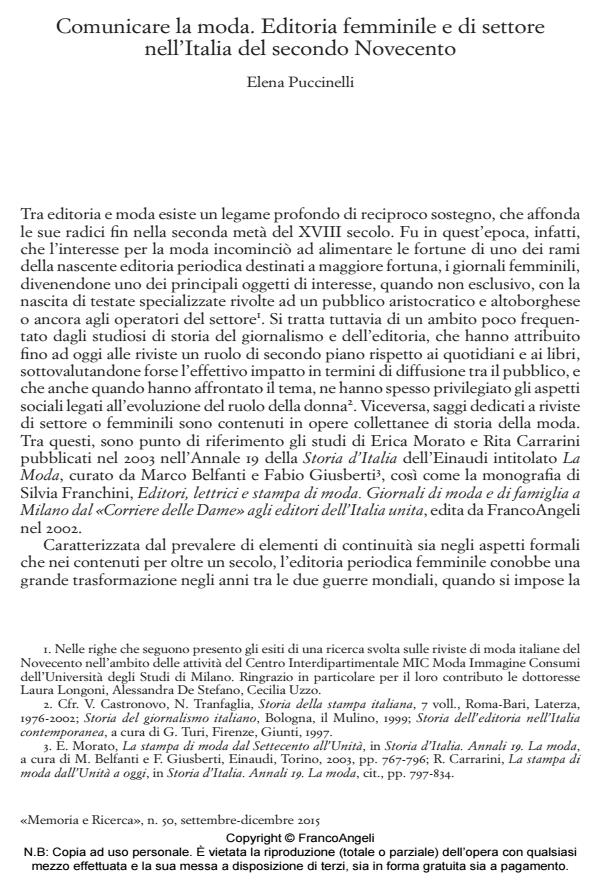Fashion Communication: Fashion and women’s magazines in Italy in the second half of the 20th century
Journal title MEMORIA E RICERCA
Author/s Elena Puccinelli
Publishing Year 2015 Issue 2015/50
Language Italian Pages 15 P. 81-95 File size 115 KB
DOI 10.3280/MER2015-050006
DOI is like a bar code for intellectual property: to have more infomation
click here
Below, you can see the article first page
If you want to buy this article in PDF format, you can do it, following the instructions to buy download credits

FrancoAngeli is member of Publishers International Linking Association, Inc (PILA), a not-for-profit association which run the CrossRef service enabling links to and from online scholarly content.
Magazines participated actively in establishing the Italian fashion system. Magazines in Italy can claim a long-standing tradition going back indirectly to the French gazettes of the 18th century and more directly to the women’s magazines founded in Milan in the 1930s. As a reflection of the changes taking place in society and especially of the new role played by women, numerous magazines appeared at the end of the Second World War. Milan emerged as the capital of Italy’s periodical press, besides being home to the country’s main publishing houses. This press gradually started a process of concentration that over the years saw the establishment of the large publishing conglomerates we have today, namely RCS Mediagroup, Mondadori, Condé Nast, Hearst. The 1960s saw the birth of magazines such as Vogue Italia and Uomo Vogue, Amica and Linea Italia, manifesto of Italian high fashion and quality textiles. In the 1980s magazines endorsed the international role of Italian designers and the promotion of Milan as fashion capital.
Keywords: Fashion, Ready-to-wear, Publishing industry, Magazines, Photography, Graphic Arts
Elena Puccinelli, Comunicare la moda. Editoria femminile e di settore nell’Italia del secondo Novecento in "MEMORIA E RICERCA " 50/2015, pp 81-95, DOI: 10.3280/MER2015-050006